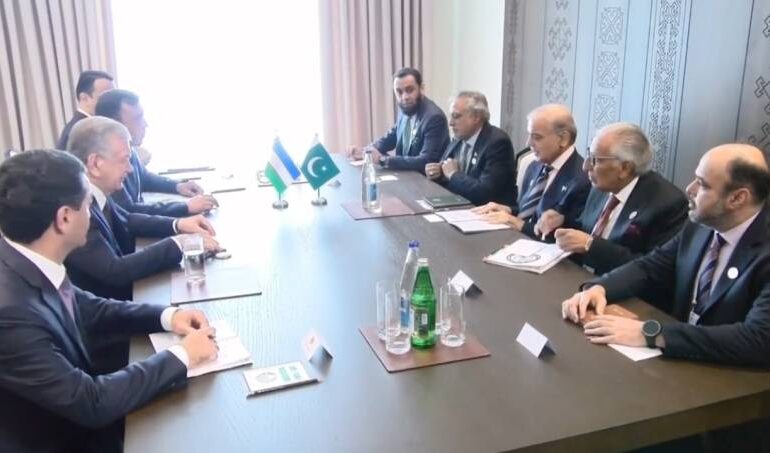
Pakistan Takes UNSC Presidency, Expands Global Diplomatic Engagement
ISLAMABAD – Pakistan’s diplomatic presence is expanding significantly on the global stage as the country assumes the Presidency of the United Nations Security Council (UNSC) for the month of July, according to Foreign Office Spokesperson Ambassador Shafqat Ali Khan.
In a detailed press briefing on Friday, Ambassador Shafqat described the UNSC presidency as a “moment of deep responsibility and purpose,” adding that Pakistan’s approach would be anchored in the UN Charter, multilateralism, and adherence to international law.
As president, Pakistan will host three high-level events:
July 22: Open Debate on Promoting International Peace and Security through Multilateralism and Peaceful Settlement of Disputes
July 23: Quarterly Open Debate on the Palestine issue
July 24: Briefing on UN Cooperation with the Organisation of Islamic Cooperation (OIC)
All sessions will be chaired by Deputy Prime Minister and Foreign Minister Ishaq Dar.
“These meetings highlight Pakistan’s ambition to act as a bridge between the UNSC and the broader UN membership,” Shafqat noted.
Expanding Multilateral Engagements
Ambassador Shafqat also announced that Prime Minister Shehbaz Sharif is representing Pakistan at the 17th ECO Summit in Khankendi, Azerbaijan, where he is advocating for regional connectivity, sustainable trade, and climate resilience, aligned with ECO Vision 2025. The Prime Minister is also holding bilateral meetings with fellow ECO leaders.
In a landmark diplomatic development, Ambassador Kamran Akhtar has been elected President of the 53rd Session of the UNIDO Industrial Development Board, marking Pakistan’s first presidency of the board. “This is global recognition of Pakistan’s constructive and consistent efforts in industrial development,” Shafqat stated.
Hydro Dispute Update
Pakistan also welcomed the Supplemental Award issued by the Court of Arbitration on June 27 in the Kishenganga and Ratle hydroelectric case, which reaffirmed the court’s jurisdiction despite India’s objections. Ambassador Shafqat called this “a vindication of Pakistan’s legal stance,” urging India to comply with the Indus Waters Treaty.
Humanitarian Concerns & Regional Diplomacy
On July 1, Pakistan and India exchanged prisoner lists in accordance with the 2008 Consular Access Agreement. Pakistan shared the details of 246 Indian prisoners, while India disclosed 463 Pakistani nationals. Shafqat called for the immediate release of those who have completed their sentences, especially those in poor health or with confirmed nationalities.
He also raised alarm over the deteriorating health of senior Kashmiri leader Shabbir Ahmed Shah, imprisoned in India’s Tihar Jail for over eight years and now suffering from prostate cancer. “India must release him immediately on humanitarian grounds,” he urged.
Commitment to Diplomacy
Ambassador Shafqat reaffirmed Pakistan’s commitment to peace, justice, and international law amid evolving regional and global complexities.
“Our foreign policy will remain guided by diplomacy, multilateral cooperation, and humanitarian values,” he said.






